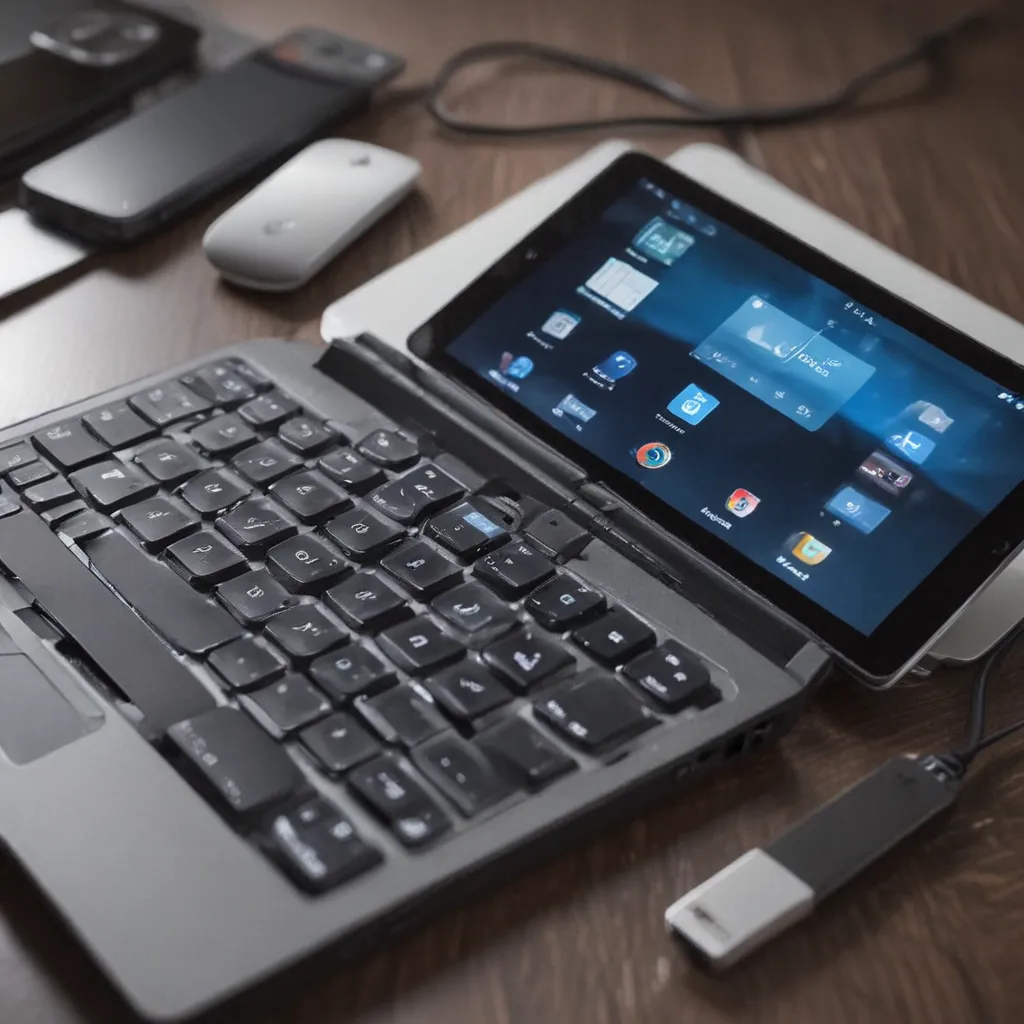The Backup Conundrum: Balancing Work and Personal Data
As a tech-savvy professional, I’ve seen firsthand the importance of keeping your work devices safe and secure. Whether you’re a small business owner or an employee at a large corporation, the data on your work laptop or smartphone is a treasure trove of sensitive information that needs to be protected. But when it comes to backups, the lines between work and personal data can get blurred, leading to a dilemma: Should you backup your work devices to your personal accounts?
The Convenience Factor
Let’s face it, backing up your work devices to your personal cloud storage accounts like Google Photos or Microsoft OneDrive can be incredibly convenient. [1] After all, you’re already logged into those accounts on your smartphone and laptop, and it’s just a few taps to start syncing your files. Plus, you can access your backed-up data from anywhere, which can be a lifesaver when you’re on the go. It’s the digital equivalent of having a spare key hidden under the doormat – it’s there when you need it, but it also comes with its own set of risks.
The Security Risks
While the convenience factor is undeniable, there are some serious security concerns to consider when backing up your work devices to personal accounts. [2] For starters, your personal accounts may not have the same level of encryption and access controls as the ones provided by your employer. This means that if your personal account is compromised, the sensitive data from your work device could be exposed to prying eyes.
Moreover, your employer may have strict policies in place regarding the use of personal cloud storage services for work-related data. Violating these policies could lead to disciplinary action, or even termination, if the breach is severe enough. [7] And let’s not forget the potential legal implications – if your employer’s confidential information ends up in the wrong hands, they could come after you for negligence or breach of contract.
The Authenticator App Conundrum
Another factor to consider is the use of the Microsoft Authenticator app for two-factor authentication. [2] While the app can be a valuable tool for securing your personal and work accounts, there’s a catch: the app backs up your account credentials and settings to the cloud, which could include work-related information.
This means that if you ever need to recover your accounts on a new device, you’ll be able to do so, but you’ll also be potentially exposing your work data to your personal cloud storage. [2] It’s a double-edged sword that requires careful consideration and planning.
Striking the Right Balance
So, what’s the solution? Well, it’s not a one-size-fits-all answer, but here are a few guidelines to help you strike the right balance:
-
Understand Your Company’s Policies: Before you even consider backing up your work devices, make sure you know your employer’s policies on the use of personal cloud storage services. [7] Some companies may have strict rules in place, while others may be more lenient. Knowing the boundaries will help you make an informed decision.
-
Separate Work and Personal Data: If you do decide to use your personal cloud storage, be diligent about keeping your work and personal data separate. [3] Use different folders or even different accounts to ensure that sensitive information doesn’t accidentally get mixed in with your personal files.
-
Encrypt, Encrypt, Encrypt: Regardless of where you’re backing up your work data, make sure it’s properly encrypted. [5] Many cloud storage providers offer encryption options, but you may also want to consider using a third-party encryption tool for an extra layer of security.
-
Explore Work-Approved Options: If your employer offers a secure, work-approved cloud storage solution, seriously consider using that instead of your personal accounts. [6] Not only will this help you avoid any potential policy violations, but it will also give you the peace of mind that your data is being properly protected.
-
Be Vigilant About Backups: Whether you’re using personal or work-approved cloud storage, make sure you’re regularly checking your backups to ensure that they’re up-to-date and that you can actually restore your data if needed. [8] Don’t wait until it’s too late to discover that your backup strategy has a gaping hole.
At the end of the day, the decision to backup your work devices to personal accounts is a complex one that requires careful consideration. By weighing the pros and cons and following best practices, you can find a solution that keeps your work data secure while still allowing you the convenience of accessing it from anywhere. And who knows, you might even discover a new backup strategy that works even better than the one you had before.
[1] https://support.google.com/photos/thread/381679/how-can-i-sync-photos-to-only-1-google-account?hl=en
[2] https://support.microsoft.com/en-us/account-billing/back-up-and-recover-account-credentials-in-the-authenticator-app-bb939936-7a8d-4e88-bc43-49bc1a700a40
[3] https://techcommunity.microsoft.com/t5/onedrive/removing-an-account-from-onedrive-for-android/td-p/792926
[4] https://support.microsoft.com/en-us/account-billing/common-questions-about-the-microsoft-authenticator-app-12d283d1-bcef-4875-9ae5-ac360e2945dd
[5] https://folio.procreate.com/discussions/5/17/32046
[6] https://help.dropbox.com/account-access/link-unlink-two-accounts
[7] https://www.washingtonpost.com/technology/2022/08/26/returning-work-devices-when-quitting/
[8] https://answers.microsoft.com/en-us/outlook_com/forum/all/forgot-password-no-longer-have-access-to/c2c24d40-ead1-4fd0-9035-72dacc6d05b0













